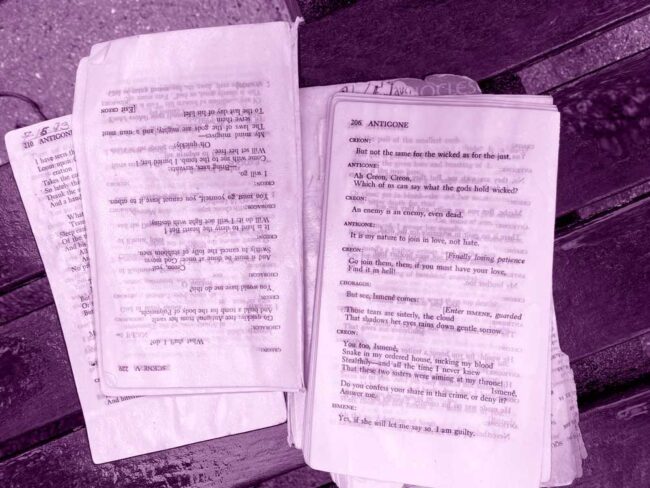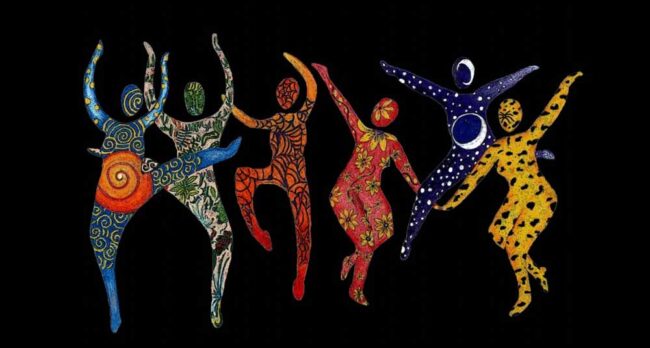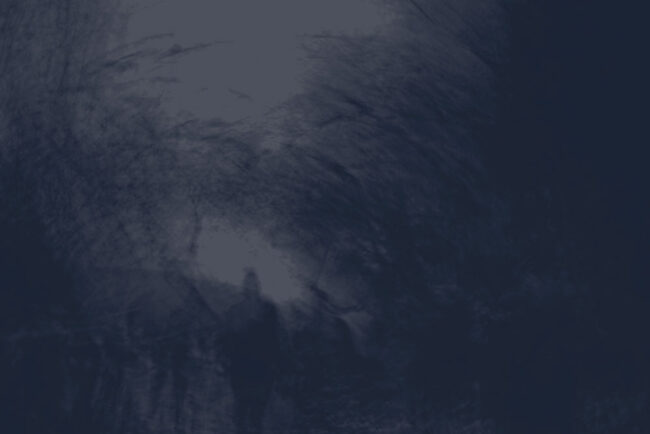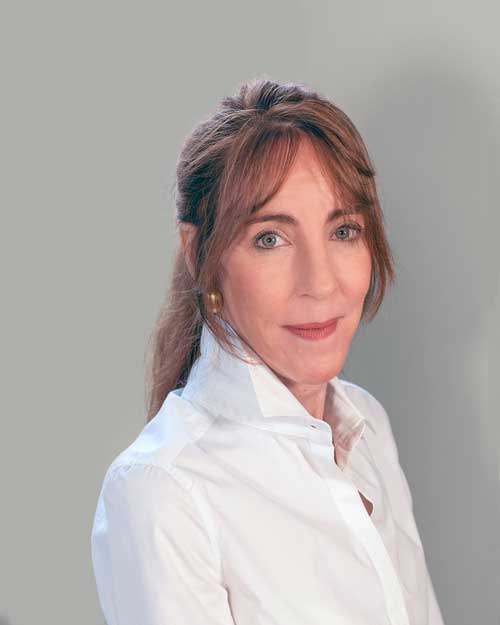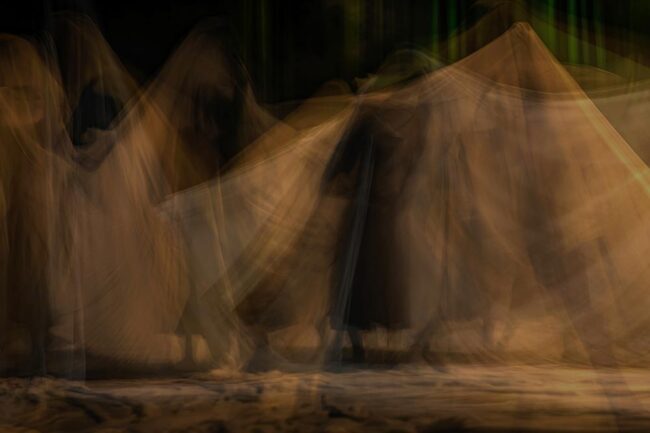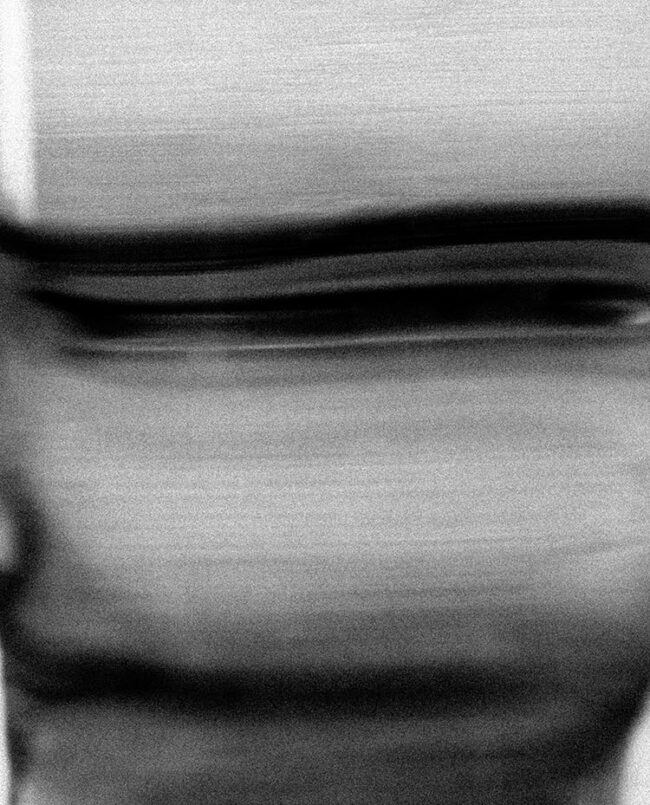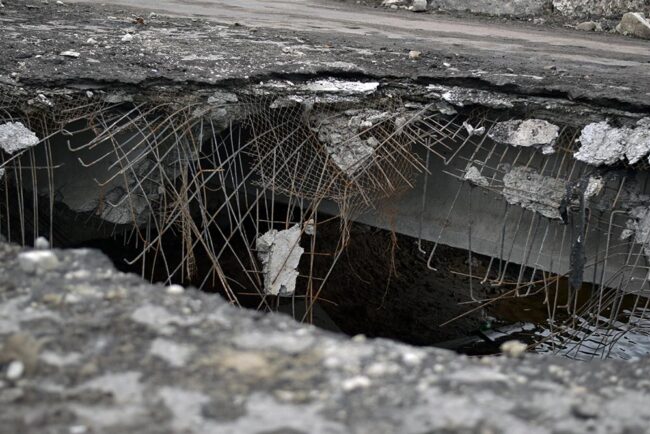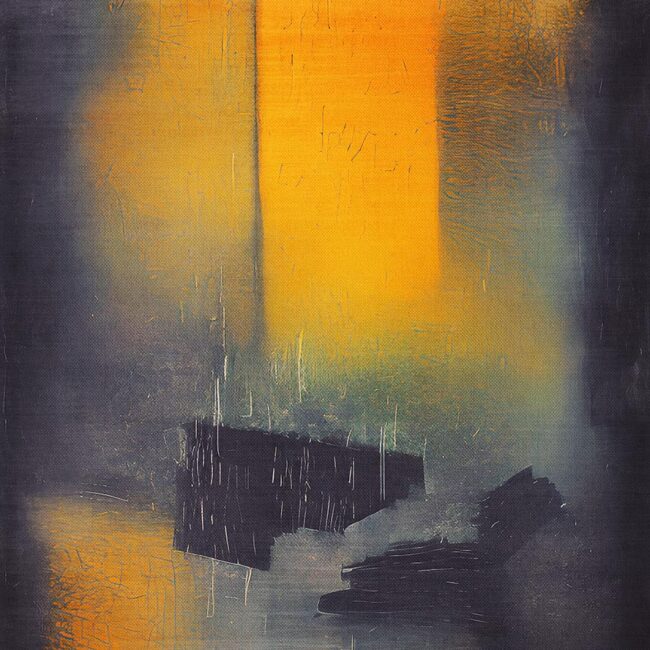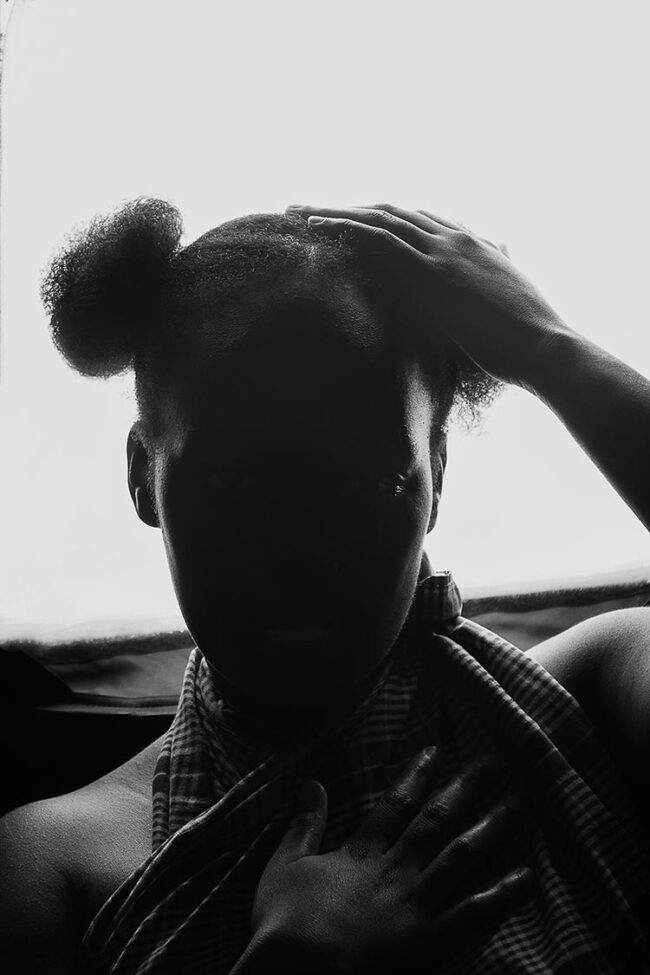Pages in the Park by Josephine Wright
[…]I had been photographing rain within the hearts and throats of flowers when I saw the pages on the wet bench that overlooked the West Side Highway and beyond to the racing waters of the Hudson. Looking more closely, I recognized the pages as the play Antigone. The two pages on top, 206 and 229, upside down from each other, were not consecutive. Had the reader taken the chunk of the book containing missing pages 207–228 because they had particular significance? Or was the intent to highlight these two remaining pages in the hope that a passerby would pause to read them. To alert them—me?…

